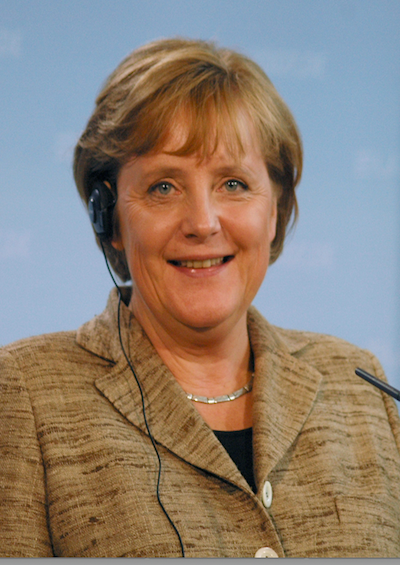The Failure of Politics: Merkel’s Euro Debacle?
On the costs of the illusion that the Euro would only bring benefits.
July 23, 2015

It may be the great magic trick of the management consulting world: No matter how complex the situation and how iffy the outcomes may appear to be, just draw a two-by-two box for your client. Define what options to write on the x and y axes – and then the client can decide.
(See TG’s recent coverage of Greece here)
Of course, a good consultant will carefully pre-shape the answer options, so that the answer the client will arrive at is more or less given. Best of all, the magic trick works, whether it concerns a pure business situation or a matter of public policy.
The top option always ends up in the top right of that box, the worst in the lower left. In between, in the top left and bottom right corners, you have the choice between two middle options.
The problem with it all is that, neat as these boxes are, in the real world you will know which box you landed in only after landing in it. Even if you go well prepared with the help of trip advisor or other services you might end up in a place in the box where you didn’t want to end up.
The same holds true for German chancellor Angela Merkel. She clearly hoped not to end up in the lower left box when she embarked on the mission to save the euro. “The euro is our common fate, and Europe is our common future” might well be her biggest mistake in her 10-year reign of Germany – and some would say of Europe.
The box Merkel was aiming for
In 2010, at the first and definitely not the last height of the euro crisis, Merkel and her team of advisors most probably had the following decision box in mind: How do we minimize the immediate political damage for us in Germany and how do we postpone the long-term political damage — even minimize it when it comes to pass?
The short-term political damage would have been clear. Preventing an immediate, uncontrollable collapse of the eurozone was necessary as this would have caused huge financial losses and demolished Merkel`s domestic reputation.
But it was also necessary to keep the German public’s illusion that the Euro would only bring benefits — and not lead to bailouts and transfers to other countries. In addition, it would also have been highly unpopular to admit that, in reality, it was German banks (not Greece and the rest of the periphery countries) that had to be rescued.
The former had given way too much credit to the latter and funded an unsustainable consumption boom in today’s crisis countries.
Merkel aimed for the upper right box: Happy voters and postponing any damage. Politically, that was understandable enough. But her choice entailed no effective solution of the crisis.
Living in denial
With more political courage on her part, she could have opted for a real solution in 2010. Such a solution required fixing the eurozone through a broad debt restructuring and mechanisms for more economic integration, which implies permanent transfers.
Of course, both of these components are highly unpopular among the German public – they were so then and are so today. Thus, she chose the “extend and pretend” option, still aiming for the upper right box hoping for a happy end and avoiding bad news today– by providing “credit” to already over indebted countries.
At first it seemed to work. The German public accepted the conditional support and believed its leadership that no taxpayers’ money would be spent for other countries.
The eurozone survived but it was not because of the politics implemented by European leaders but due to the ECB that did whatever it took to keep the Euro afloat.
Moment of truth
Unfortunately for Merkel, it didn’t last. It is only possible to deny the hard economical facts for a certain period of time. The latest effort to “rescue” Greece and the Euro made this transparent for everybody.
The proposal to Greece for a voluntary exit of the Euro made by the German finance ministry can be seen as the last attempt to stick to the 2010 strategy.
It would have incurred massive losses for German taxpayers but would have been sold domestically as the only way to prevent the worst outcome: Paying for all countries on a permanent basis. It would not have been in the upper right box anymore, but still been politically acceptable.
Now it is time for Merkel to face the unpleasant truth. Her aiming for a pain-free solution has failed. Now, she sits in the lower left box with unlimited costs for Germany, a tarnished reputation in Europe and a soon-to-come domestic backlash.
Whenever you make your choice, make sure that your choice is realistic. It is nice to dream about excellent food and good service. But if you cannot afford it, make the compromise upfront to avoid ending up where you don’t want to be.
Takeaways
Germany gave way too much credit to Greece, funding an unsustainable consumption boom.
The eurozone could have been fixed by broad debt restructuring and more economic integration.
Merkel chose the “extend and pretend” option by providing “credit” to already over indebted countries.
Merkel now faces unlimited costs for Germany, a tarnished reputation in Europe and domestic backlash.
